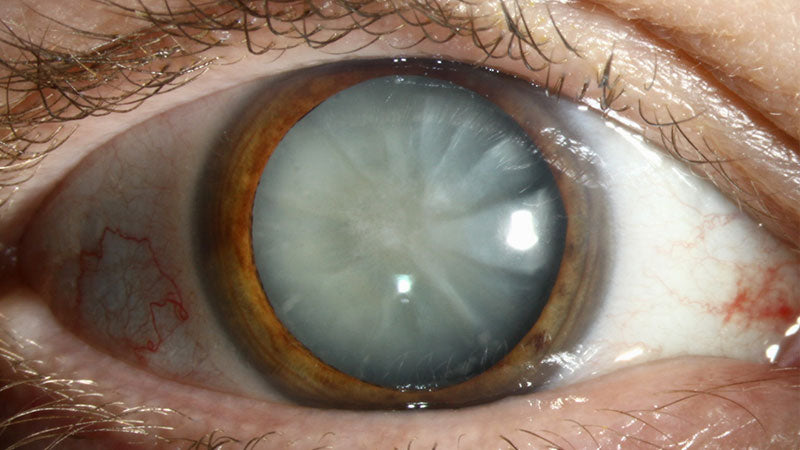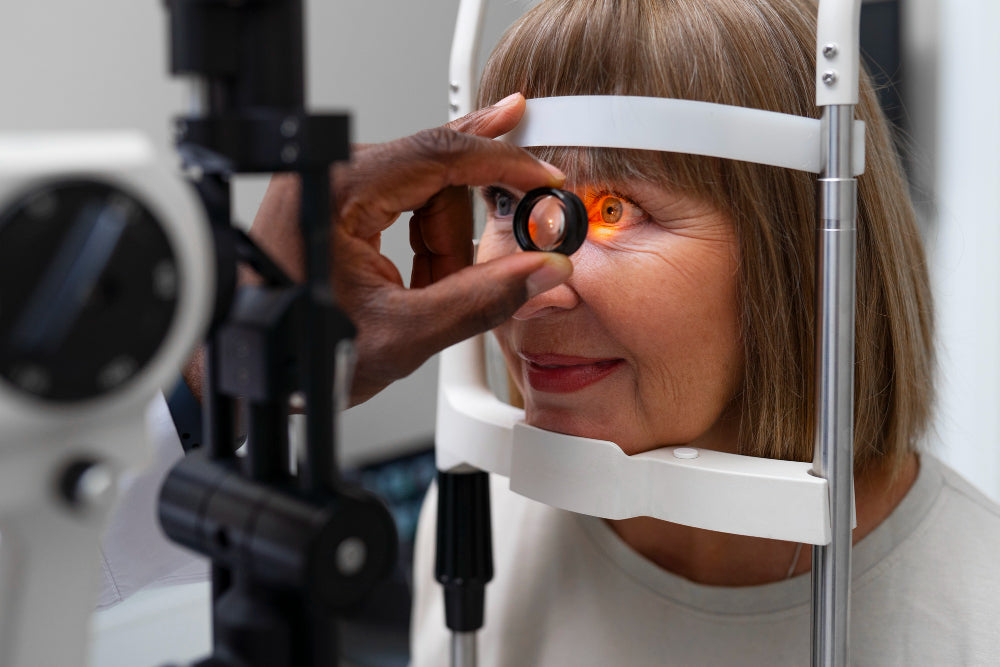Cataracts are a prevalent eye condition, especially among the older population, often leading to significant visual impairment. A common concern is the potential for cataracts to cause blindness.
Can you really go blind from cataracts? Yes, untreated cataracts can lead to blindness over time due to the progressive clouding of the lens, resulting in severe vision impairment.
This blog post delves into the progression of cataracts and their impact on vision. It addresses crucial questions such as "How long does it take to go blind from cataracts?" and "Can cataracts cause permanent blindness?"
So, let's understand the impact of cataracts on vision.
What are Cataracts?
Cataracts develop when the lens of the eye, which is typically clear, becomes clouded. This clouding affects the quality of your vision over time.
Although cataracts are most commonly associated with aging, they can also result from other factors, such as:
- Genetics
- Injuries
- Medical conditions like diabetes
- Prolonged exposure to infrared radiation
According to the World Health Organization (WHO), cataracts are a leading cause of vision impairment and blindness worldwide.
What to Expect with Cataracts?
Cataract symptoms typically worsen over time. Here's a typical progression:
- Blurred vision: This might be the first noticeable symptom, like seeing through a foggy window.
- Increased light sensitivity: Glare from sunlight or lamps can become more bothersome.
- Double vision: You might see one object appear as two.
- Fading colors: Colors may appear less vibrant or dull.
- Difficulty seeing at night: Seeing in low light conditions can become more challenging.
Can You Go Blind from Cataracts?

Yes, cataracts can cause blindness if left untreated. However, the progression of cataracts and the extent to which they impair vision can vary widely among individuals.
Cataracts affect more than 20.5 million Americans aged 40 and older, and 6.1 million Americans have had cataract surgery.
How Long Does It Take to Go Blind from Cataracts?
The timeline for cataracts to progress to blindness varies based on several factors, including the individual's age, overall health, and the severity of the cataracts.
- Age-related cataracts: These typically develop slowly, often over decades. Many people live years with some form of cataracts without them leading to complete blindness.
- Posterior subcapsular cataracts: These can develop more rapidly, sometimes severely impairing vision within months or a few years.
In some cases, cataracts may progress slowly over several years, while in others, the deterioration of vision may occur more rapidly.
- Without intervention, cataracts can eventually lead to significant vision loss, impacting daily activities and quality of life.
Can Cataracts Cause Permanent Blindness?

While cataracts can cause severe vision impairment, they typically do not result in permanent blindness if treated promptly. The good thing is that modern surgical methods can effectively restore vision lost to cataracts by replacing the clouded lens with an artificial one.
It makes the blindness caused by cataracts reversible, unlike other forms of blindness that result from nerve or retinal damage. Cataract surgery is the most commonly performed surgical procedure in the world. It has a high rate of success with a low risk for complications, making it one of the most successful surgical procedures.
Living with Cataracts
Many people wonder, "Can you live with cataracts?" The answer is yes, to an extent. Individuals do live with mild forms of cataracts without experiencing significant vision impairment.
How cataracts affect your daily life largely depends on the severity of the clouding and its location on the lens, as well as your personal demands on your vision. Here are some points to consider:
- Early and mild cataracts might not disturb vision much.
- Advanced cataracts can make it difficult to read, drive, and see facial expressions.
In the early stages, cataracts may cause minimal symptoms, such as slightly blurred vision or glare from bright lights.
Living with cataracts requires regular monitoring by an eye care professional to decide the best time for surgery, which is the only definitive treatment for this condition.
The Importance of Early Detection and Treatment

- Regular eye exams are crucial, especially as you age, to detect cataracts or other eye issues early.
- Surgical treatment for cataracts has a high success rate. According to the World Health Organization, cataract surgery is one of the most effective and impactful surgeries, significantly enhancing quality of life.
Treatment Options for Cataracts
- Cataract surgery is the most effective treatment for advanced cataracts.
- During cataract surgery, the clouded lens is removed and replaced with an artificial intraocular lens (IOL), restoring clear vision.
- Cataract surgery is generally safe and highly successful, with millions of procedures performed each year worldwide.
Conclusion

While cataracts can indeed lead to significant vision loss and potentially cause blindness if left untreated, the outlook is generally favorable with appropriate intervention. Advances in medical technology make cataract surgery a safe and effective option.
Cataract surgery helps restore vision successfully in the vast majority of cases. If you suspect you or a loved one may be developing cataracts, having a comprehensive eye exam is a critical step toward preserving eyesight and quality of life.
Remember, early detection and timely treatment are your best defenses against the vision loss caused by cataracts.





